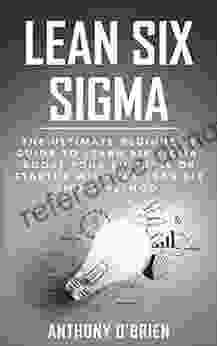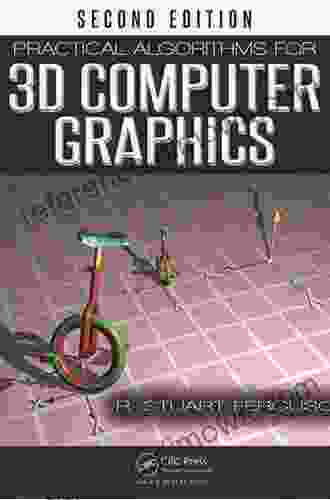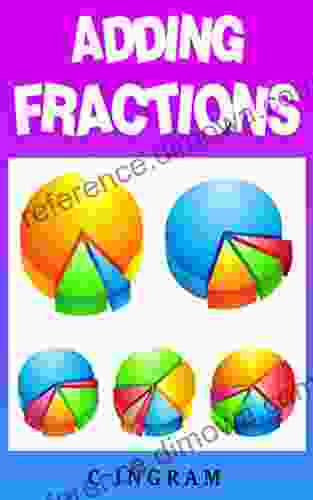Knowledge Acquisition for Expert Systems: Unlocking the Power of Human Expertise

In the realm of artificial intelligence, expert systems stand as beacons of knowledge, providing unparalleled expertise in specific domains. At the heart of these systems lies the process of knowledge acquisition, a meticulous endeavor that captures the wisdom of human experts and transforms it into a format that computers can comprehend.
5 out of 5
| Language | : | English |
| File size | : | 4771 KB |
| Text-to-Speech | : | Enabled |
| Enhanced typesetting | : | Enabled |
| Word Wise | : | Enabled |
| Print length | : | 239 pages |
| Screen Reader | : | Supported |
| Paperback | : | 30 pages |
| Item Weight | : | 4.5 ounces |
| Dimensions | : | 8.5 x 0.07 x 11 inches |
The Fundamentals of Knowledge Acquisition
Knowledge acquisition is the systematic process of gathering, representing, and structuring expert knowledge for use in expert systems. This involves:
- Knowledge Identification: Discovering the specific areas of expertise that need to be captured.
- Knowledge Representation: Choosing a suitable representation scheme to encode the knowledge in a way that the system can understand.
- Knowledge Acquisition Techniques: Applying a variety of methods to extract knowledge from experts, including interviews, observations, and domain analysis.
- Knowledge Validation: Ensuring the acquired knowledge is accurate, complete, and consistent.
Expert Knowledge Elicitation Techniques
Elicitation techniques are employed to extract knowledge from human experts. Prominent methods include:
- Interviews: Structured or unstructured conversations to gather insights from experts.
- Observations: Observing experts as they perform their tasks to capture their knowledge in action.
- Domain Analysis: Analyzing documents, reports, and other resources to gain a comprehensive understanding of the domain.
- Protocol Analysis: Recording and analyzing the cognitive processes of experts while they solve problems.
Knowledge Representation Schemes
Once knowledge is acquired, it must be represented in a form that the expert system can interpret. Common representation schemes include:
- Rules: Representing knowledge as a set of logical rules, such as "if-then" statements.
- Frames: Organizing knowledge into structured objects with slots and facets.
- Semantic Networks: Creating interconnected nodes and arcs to represent concepts and relationships.
- Ontologies: Formal representations of domain knowledge that capture concepts, properties, and relationships.
Advanced Knowledge Acquisition Techniques
Beyond traditional methods, advanced techniques enhance knowledge acquisition:
- Machine Learning: Using algorithms to automatically learn knowledge from data.
- Natural Language Processing: Enabling systems to understand and interpret natural human language.
- Knowledge-Based Systems: Utilizing existing knowledge to guide the acquisition process.
- Collaborative Knowledge Acquisition: Involving multiple experts and stakeholders in the knowledge acquisition process.
Benefits of Effective Knowledge Acquisition
Expert systems built on a strong foundation of knowledge acquisition reap numerous benefits:
- Accurate and Informed Decisions: Systems can make decisions based on comprehensive and reliable knowledge.
- Enhanced Problem-Solving: Systems can identify and resolve problems using expert-level knowledge.
- Time Savings: Systems can automate tasks and provide instant access to specialized knowledge.
- Improved Productivity: Systems can augment human expertise and enhance productivity.
- Knowledge Preservation: Systems can capture and preserve valuable expert knowledge for future generations.
Knowledge acquisition is the cornerstone of expert systems, enabling them to harness human expertise and deliver exceptional performance. By understanding the fundamentals, applying appropriate techniques, and leveraging advanced methods, knowledge engineers can create expert systems that revolutionize decision-making, problem-solving, and knowledge management. Unlock the power of human expertise and embark on the path to building intelligent systems that empower organizations and drive innovation.
5 out of 5
| Language | : | English |
| File size | : | 4771 KB |
| Text-to-Speech | : | Enabled |
| Enhanced typesetting | : | Enabled |
| Word Wise | : | Enabled |
| Print length | : | 239 pages |
| Screen Reader | : | Supported |
| Paperback | : | 30 pages |
| Item Weight | : | 4.5 ounces |
| Dimensions | : | 8.5 x 0.07 x 11 inches |
Do you want to contribute by writing guest posts on this blog?
Please contact us and send us a resume of previous articles that you have written.
 Book
Book Novel
Novel Page
Page Chapter
Chapter Text
Text Story
Story Genre
Genre Reader
Reader Library
Library Paperback
Paperback E-book
E-book Magazine
Magazine Newspaper
Newspaper Paragraph
Paragraph Sentence
Sentence Bookmark
Bookmark Shelf
Shelf Glossary
Glossary Bibliography
Bibliography Foreword
Foreword Preface
Preface Synopsis
Synopsis Annotation
Annotation Footnote
Footnote Manuscript
Manuscript Scroll
Scroll Codex
Codex Tome
Tome Bestseller
Bestseller Classics
Classics Library card
Library card Narrative
Narrative Biography
Biography Autobiography
Autobiography Memoir
Memoir Reference
Reference Encyclopedia
Encyclopedia Frederick S Woods
Frederick S Woods Abigail Ann
Abigail Ann Shay Youngblood
Shay Youngblood Steven Tingle
Steven Tingle A R Alexander
A R Alexander Melba J Duncan
Melba J Duncan Nel Martin
Nel Martin Vladimir G Plekhanov
Vladimir G Plekhanov Abdus Salam
Abdus Salam John Clubbe
John Clubbe Cara Whitney
Cara Whitney Richard A Billows
Richard A Billows Edward M Steel
Edward M Steel Mike Aylwin
Mike Aylwin Lin Stepp
Lin Stepp Rebecca Maldonado
Rebecca Maldonado Richard Fitzpatrick
Richard Fitzpatrick Karri Kadin
Karri Kadin Kelly Greenawalt
Kelly Greenawalt Seabury Blair Jr
Seabury Blair Jr
Light bulbAdvertise smarter! Our strategic ad space ensures maximum exposure. Reserve your spot today!

 Ethan GrayUnveiling the Majesty of Shadow of the Crown Annotated: An Epic Journey into...
Ethan GrayUnveiling the Majesty of Shadow of the Crown Annotated: An Epic Journey into...
 Rubén DaríoThe Ultimate Beginner's Guide to Learn Six Sigma and Boost Your Business or...
Rubén DaríoThe Ultimate Beginner's Guide to Learn Six Sigma and Boost Your Business or... Willie BlairFollow ·2.7k
Willie BlairFollow ·2.7k Robert HeinleinFollow ·6.9k
Robert HeinleinFollow ·6.9k Jimmy ButlerFollow ·7.7k
Jimmy ButlerFollow ·7.7k Eddie PowellFollow ·9.2k
Eddie PowellFollow ·9.2k Enrique BlairFollow ·14.5k
Enrique BlairFollow ·14.5k Yasushi InoueFollow ·13.4k
Yasushi InoueFollow ·13.4k Ben HayesFollow ·8.5k
Ben HayesFollow ·8.5k Jesse BellFollow ·7.6k
Jesse BellFollow ·7.6k

 Julio Cortázar
Julio CortázarShift Your Perspective, Seize Your Potential, Own Your...
A Transformative Guide to...

 Isaias Blair
Isaias BlairPractical Algorithms For 3d Computer Graphics: Unlocking...
In the realm of digital artistry, 3D computer...

 Joseph Heller
Joseph HellerClear Vision Through Cloudy Eyes: A Guide to Overcoming...
Have you ever felt...

 Leo Tolstoy
Leo TolstoyThe True Story of My Fairygodparent Who Almost Killed Me...
Book Description In this captivating...

 Earl Williams
Earl WilliamsCanada 10 Must Visit Locations: A Captivating Journey...
Prologue: A...
5 out of 5
| Language | : | English |
| File size | : | 4771 KB |
| Text-to-Speech | : | Enabled |
| Enhanced typesetting | : | Enabled |
| Word Wise | : | Enabled |
| Print length | : | 239 pages |
| Screen Reader | : | Supported |
| Paperback | : | 30 pages |
| Item Weight | : | 4.5 ounces |
| Dimensions | : | 8.5 x 0.07 x 11 inches |










